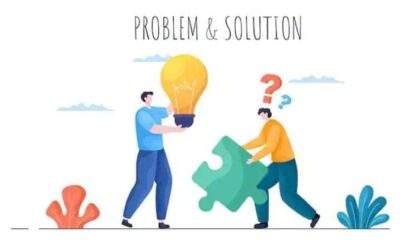Democracy & Governance
Corruption: An Albatross Around Our Necks -By Cynthia Akpomudiare


Cynthia Akpomudiare
A loaf of bread placed on a table in a room without preservation gets mouldy within 48 hours. Options available to us are to cut off the mouldy portion and still leave it on the table or keep the bread in the refrigerator ab initio. The temperature in the fridge provides a conducive environment that is kept constant to preserve the whole bread. This process demands extra effort, from the provision of a fridge to constant power supply to keep it running. It therefore follows that decay (and thus corruption) happens naturally, except definite/specific interventions are introduced to control it.
Although many experts still question whether such self-serving strategy won’t be damaging to the anti-corruption cause in the long run, the federal government’s whistle-blowing initiative appears to have panned out well, as far as aiding the recovery of stolen funds. However, there remains the issue of the ‘actual’ sums recovered, what has been paid to whistle-blowers and the use to which such recovered funds are being put. How sustainable is this as a strategy? Is this not tantamount to ‘cutting the mould out the bread’ and hoping the whole will be preserved? Should we not be more concerned about putting in the right energies to preserve the whole? So, we recover funds through those denouncing ‘corrupt persons’ they are aware of, in exchange for them having a share of the loot but, even if we don’t see this as socially reprehensible strategy, what does this do to prevent Nigeria’s army of young people watching the unfolding scenarios from thinking those being denounced are in a mess only because they didn’t ‘carry others along’? What difference would it make to corruption in the end?
A holistic approach to tackling the menace of corruption would be to put in the energies required to prevent the bread from decaying in the first place, whilst ‘correcting’ the situation in those in whom the decline has begun and, if it is possible, pushing to have the decay reversed. The issue is about how the youth, who constitute more than 120 million of Nigeria’s 180 million population feel about expending their energies on preventing corruption or agitating for the corrupt to be isolated to preserve the whole or educating their peers to reverse the rot. Civic responsibilities and consciousness must be drilled down to all, especially the youth, up to the age of 40 years. It becomes pertinent to also mention here that the expression, ‘train up a child in the way she should go and when she grows up. she will not depart from it’ is relevant and squarely puts the first line of prevention of corruption in the camp of the family, then the schools, churches/mosques and all those who influence, inspire or sponsor their development. It becomes ‘right’ to appropriately compensate the ‘genuine’ whistle blower who tattled not out of self-serving motives like ‘spite’, but rather out of a ‘need to perform an important civic duty in the public interest.’ It then follows that government’s educational efforts should be enhanced through well targeted partnering with social organisations to re-engineer the behaviour of the younger generation away from the evils of corruption, as well as enunciating acceptable standards of public behaviour.
On the Global Corruption Barometer and Corruption Perceptions Index published by Transparency International over the last five years, Nigeria has consistently performed poorly, leading some to conclude that she is one of the most corrupt countries in the world. A perceived all-encompassing culture of corruption gives the impression that there is practically no room for anyone to operate outside the borders of corruption, and we know that. It is, however, true that engaging in corrupt acts is easily justified by many as ‘the only way to survive’ in Nigeria. However, this attitude, as we have argued, does not necessarily stem from a lack of morality or deep, intrinsic criminal intentions on the part of Nigerians, but perhaps from exasperation at the hopelessness of day-to-day life. This is reflected in the behaviour of individuals, as well as in the way people do business.
We therefore need to understand the needs, wants and values of our youth and how these shape their beliefs and aspirations. We must describe the corruption problem in Nigeria from their point of view – the costs associated with doing the right thing, the barriers to overcome and hoops to jump through for those wanting to do right and a clear understanding of the incentives (not necessarily financial) needed to keep them focused on doing the right thing. After all, to self-regulate you need a clear idea of the standards to which your actual or anticipated behaviour will be held (making you face up to the constraints); a clear set of outcomes you wish to achieve and those you wish to avoid (incentives) and the internally motivating force that keeps you focused on choosing the right path (the narratives).
To improve the fight against corruption, we must change the narrative for the youth; properly incentivise the right behaviours, whilst addressing the real issues of concern to them for their growth and survival. This purposeful engagement will also help them develop a sense of: ‘what-is-in-it-for-me’ if I shun corruption and encourage others to do the same? It will equally help them develop a sense of connection with an abstract concept like ‘One Nigeria’, where the challenges to survival are incapacitating, daily.
Cynthia Akpomudiare is director, Stakeholder Relations at the Convention on Business Integrity(CBi) and the project director for the NSE-CBI Corporate Governance Rating System.




















